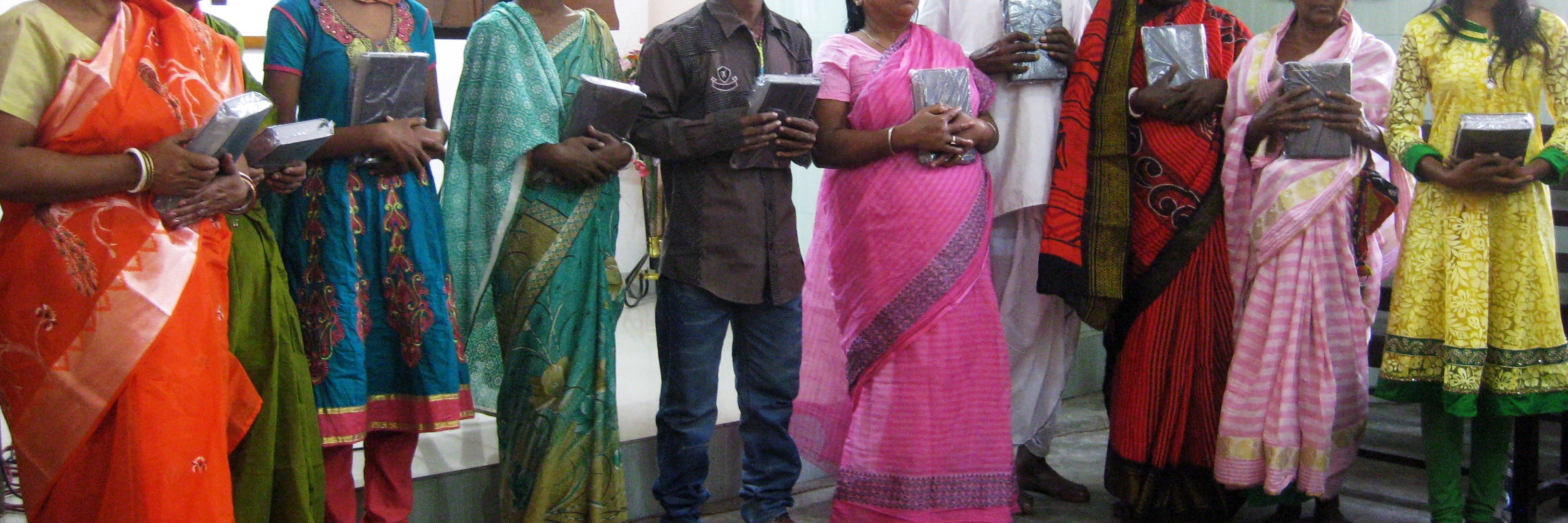Few people know that “I Have Decided to Follow Jesus,” sung by schoolchildren at Vacation Bible Schools all across the USA, originated in northeast India in the late 1800s. A man from Assam converted to Christianity due to the efforts of a Welsh missionary in the region. He was rounded up by locals and threatened to be executed by a local tribal chief. When faced with death, he said, “I have decided to follow Jesus. There is no turning back.”
When watching his children executed in front of him, he is reported to have said, “Though no one joins me, still I will follow.” His wife was then executed and he replied, “The world can be behind me, but the cross is still before me.” 19 And with that, he was killed. The story quickly circulated among Indian believers and an Indian missionary, Sadhu Sundar Singh put the man’s final words into a hymn. A Canadian songwriter and American hymn editor eventually picked up the song and it began to circulate in American songbooks in the 1960s, made popular by the Billy Graham Crusade.
As for the men of the Assamese village, according to the story, it is said that the man who murdered the convert eventually became a Christian himself.
***
While religious persecution still exists in modern India, it varies widely on the region. While communities such as Khalpar have experienced minimal conflict, a neighboring village called Nalpur, has seen persecution on a frequent basis. One of the men of Nalpur recently had some land he wanted to donate for both a church and a burial ground, Andy says. Because of the Hindu custom of cremation, Christians like to do bodily burials, he explains.
“They started building a boundary wall around that burial ground,” Andy says. “Maybe about a week or a week and a half after they started some of the guys from that area came out. The guys said, ‘Go ahead, you can do whatever you want, you can build a burial ground, you’re going to be the first one we put in it.’”
“One night 100 people from the village came to the same man’s house and said, ‘Stop doing what you’re doing…we’re going to burn your house down and kill your son.’ The conflict there lasted in earnest for about a year.”
The last day of our trip, we are able to witness some Indian baptisms at a church a few blocks from the hotel. It is a plain church with wooden benches and a gray slate floor. Wooden boards on the floor at the center of the room open up to a T-shaped baptismal. Then a sermon about the cost of following Jesus.
“Sometimes we sing a song in church and we say, ‘The cross before me, the world behind me.’” Andy says. “But what does that mean? It means the world is behind us, the cross is in front of us, so where are we?”
(“Happy!” someone shouts.)
Andy smiles. “We’re not fully in the world anymore, but neither are we fully in Heaven yet, so there are difficulties that come. You here today have chosen to do that, sometimes at a great cost to yourself. It can create problems in your life, I know.”
“So this is a strange thing about the Kingdom of God. We have to endure suffering. And even in the United States we endure suffering. God says everyone is going to have to endure suffering. But there is also another truth that Paul is very quick to point out, and that’s that we can enjoy Jesus, even though we’re going through difficult times. And he talks about this in Philippians 3. Paul says, ‘Whatever was to my profit, I now consider loss for the sake of Christ. What is more, I consider everything a loss compared to the surpassing greatness of knowing Jesus my Lord, for whose sake I have lost all things.’”
The baptizees then step forward to say a few words – mostly “Pray for me, I am about to take baptism,” and are presented with a Bible. First a middle-aged woman with a gold nose ring and bracelets, then a teenage girl with a pink sari and single, thick braid down her back. She is followed by a middle-aged woman dressed in red with sindoor in her part, and an old woman with gray hair. Some of the younger baptizees give a small smile, calm and hopeful. The older baptizees are more serious and solemn, perhaps because they know the difficulties that could be coming.
“Baptism is a significant step for people to take here,” Andy says later. “It’s like the line in the sand – ‘Fine, believe in Jesus, but do not take Baptism.’ So when they commit to that, that’s why they’re saying, “Please pray for me…I’m about to take baptism.’ It’s because of what they know could happen on the back side of it. Here they have to file paperwork with the government to say, ‘I’ve converted to Christianity.’ You have to be 18 in order to do it, so there are very firm steps required.”
We take a picture of the 10 baptizees at the front of the church holding their Bibles, but unsmiling. The testimonies begin to roll.
“I have been living here for 35 years,” says one man. “I used to pray and sacrifice to idols, hoping it would change my situation. I came to know the Lord last year. When I came to Christ, I believe in sharing my faith with others. While driving my rickshaw, I tell people about Jesus.”
“I used to be a devotee of Lord Krishna. A friend in the slum invited me to church. I started coming and slowly I began to know more about Jesus.”
“My husband had problems with alcohol. I went out to try to commit suicide several times.”
“My mother was a Christian, but I got married in a Hindu family. I was a maidservant, but now I go to the same houses with a new occupation. Now I have a different identity.”
“My husband got sick. We went to many doctors. We all prayed, and by faith he was healed.”
To be continued…
Or start at the beginning: read the full journey here.


